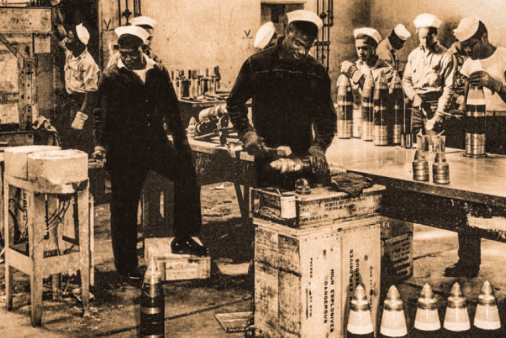
Honoring Black History Month in Concord
From a tragic event to a new park named for civil rights trailblazer Thurgood Marshall, Concord pays tribute to Black History Month through our own significant past and present
Above Photo Courtesy of East Bay Regional Park District Website
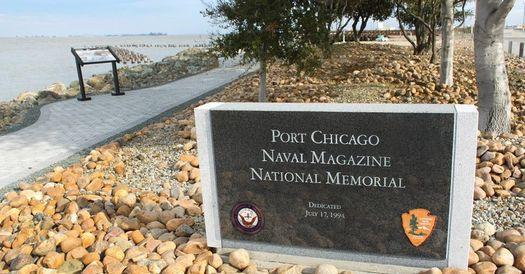
A Little Bit About Black History Month:
The seeds of Black History Month, which President Gerald Ford decreed a national observance in 1976 as a time to “honor the too-often neglected accomplishments of Black Americans in every area of endeavor throughout our history,” were planted half a century earlier by historian, author, and journalist, Carter Woodson.
As one of the first scholars to study the history of the African diaspora and co-founder of the Association for the Study of African American Life and History (ASALH), Woodson launched “Negro History Week” in 1926 to celebrate the accomplishments of African Americans and promote the study of Black history. The reason for the February timing was because it encompassed the birthdays of two great American symbols of freedom – Abraham Lincoln (February 12th) and Frederick Douglass (February 14th).
Today, Black History Month is celebrated widely throughout the month of February, and in Concord – a community defined by its vibrant diversity – we honor its significance through our own past and present.
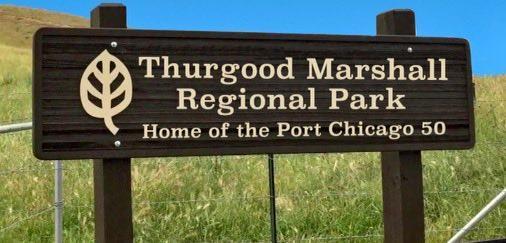
Thurgood Marshall Regional Park – Home of the Port Chicago 50:
Concord’s Ground Zero for Civil Rights and Social Justice
Right in our own backyard is the first East Bay Regional Park in Concord, “Thurgood Marshall Regional Park – Home of the Port Chicago 50.” On June 1, 2021, it was officially named after the first African American U.S. Supreme Court Justice and the group of 50 Black sailors he advocated for as a civil rights attorney for the NAACP.
Marshall advised the defense counselors for the sailors who were accused of mutiny after they refused to go back to the dangerous job of loading munitions on ships in the wake of the devastating Port Chicago Naval Magazine blast that killed 320 men and injured 390 more in 1944.
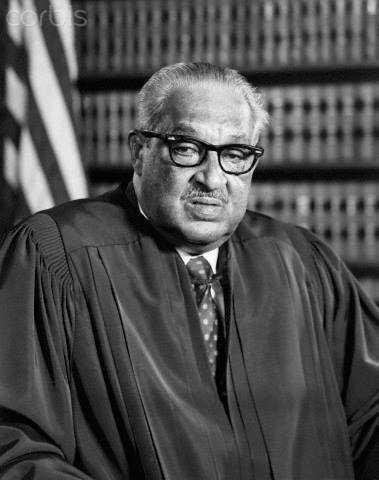
Although the 50 sailors were found guilty and sentenced to lengthy prison terms, their trial brought to light the discriminatory Jim Crow practices and racial prejudice that existed within the Navy. Thurgood Marshall’s high-profile appeal ultimately paved the way for the desegregation of the entire U.S. military.
In June, 2022, Park District Board President Colin Coffey and Board Director Beverly Lane hosted US Representative Mark DeSaulnier at the future site of the Thurgood Marshall Regional Park – Home of the Port Chicago 50 to discuss future plans for the Park District’s newest park. Efforts to advocate for funding and community support are ongoing as is work to bring justice to the 50 sailors wrongly convicted of mutiny.
On July 15, 2022, DeSaulnier announced that he successfully passed a measure in the House of Representatives to exonerate the Port Chicago 50.
For more information, read the press release here.
Brochure: EBRPD Support for the Exoneration of the Port Chicago 50

In July 2019, the 2,687 acres of land that comprised the former Concord Naval Weapons Station and Port Chicago Naval Magazine, was officially transferred to the Park District. Its new official name came out of an extensive community input process that included ancestors of the native Chupcan, a Bay Miwok speaking people, whose ancestral land encompasses the park, and who are the first people connected to this area to have suffered social injustices.
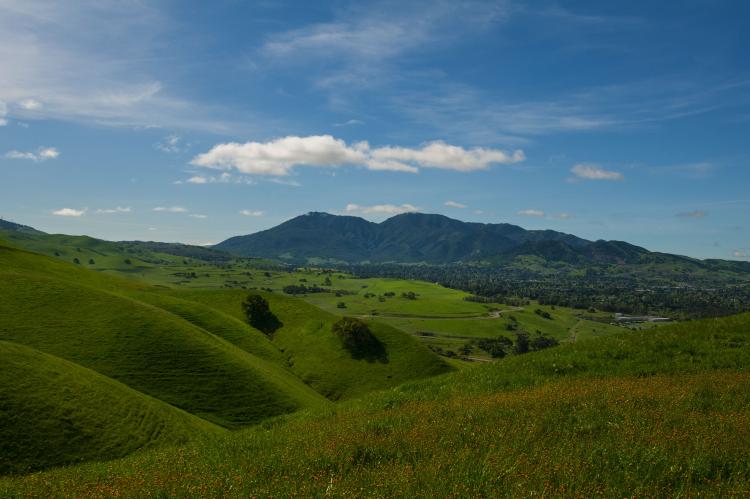
There is currently no date set for the public opening, but the park is currently in the process of being designed and permitted. The planned visitor center and park programming will integrate the land’s natural history and outdoor recreational opportunities with its unique place in the human history of civil rights and social justice. Opening the park is expected to take several years.
More information: Park Planning.
Written by Karen Bakar for Visit Concord